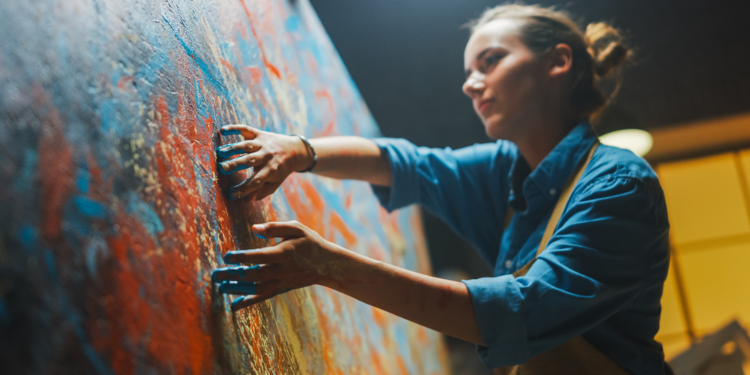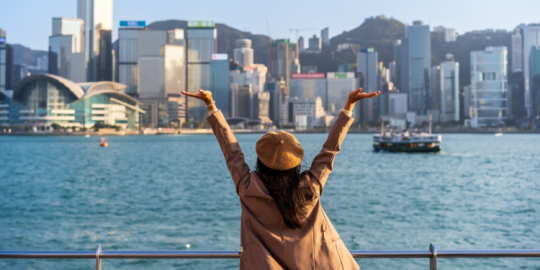Artistic endeavors abroad
The 18th edition of the European Artistic Professions Days (April 2-7) celebrated art, artists, and diverse cultures. This event stands as the largest international gathering dedicated to the arts, featuring numerous activities across various European cities under this year's theme: "On the fingertips," providing artists with a platform to showcase and express their artistry.
However, amidst this celebration, can artists freely express themselves and exhibit their art without concerns about reception in their host country?
Cultural attitudes towards nudity and taboos worldwide
Attitudes towards nudity vary across nations, with different regulations governing its expression. While nudity might be acceptable in certain contexts, such as beaches (albeit with location-dependent nuances), public displays may not be tolerated. For instance, Portuguese law doesn't explicitly address "nudity as a crime," but exhibitionism is punishable. Thus, if an artist employs their body as a form of artistic expression abroad, considerations arise about where this "living artwork" is showcased – be it the streets of Barcelona, Montreal, New York, or Dubai.
Apart from legal frameworks, moral standards wield significant influence. Often, it's morality rather than legality that condemns artistic works. In the Gulf States, Indonesia, India, and many African nations, adherence to cultural and moral norms dictates dress codes. Failure to comply may render a work "too scandalous" or "offensive to public decency." However, consensus on what constitutes offense varies, mirroring challenges in objectively defining public decency.
Indecent exposure
Censorship isn't confined to international borders. In Japan, visual artist Megumi Igarashi faced legal repercussions in December 2014 for violating obscenity laws by incorporating her genitalia into her art. Despite her incarceration and fine, this censorship paradoxically bolstered her global recognition, highlighting societal taboos surrounding the female body in Japan.
Country-specific views on art: legal and moral frameworks
How can we judge whether an artistic work is in accordance with the law? If the Igarashi case involves a Japanese citizen being censored in Japan, the same could happen to a foreign artist. It's not always easy to understand the subtleties of a law. The same Japan seems to have a better "understanding" of other forms of art that also show nudity. The eligibility criteria for artist visas tend to focus on defining the artistic professions that foreigners are allowed to practice. As far as nudity is concerned, the penalty can be imposed even without a legal framework, as the "moral law" retains a strong influence.
Why such a fuss? By revealing themselves, even through transparency, artists touch "things we shouldn't see". This vision sexualizes nudity, even if it means creating ubiquitous situations, such as the censorship of artworks on social media. These same social media websites are blamed for presenting sexualized nudity. Conversely, countries where nudity tends to be desexualized are more tolerant, such as Iceland, where people see more physical diversity.
Artists resort to techniques that become art forms to get around "moral prohibitions" and continue producing. Australian artist Julien Comte-Gaz, who lives in France, pixilates nude photos to cut them up, reassemble them, and make them visible to all.
Can artists practice their craft anywhere?
Let's move on to the question of career opportunities. Of course, practicing a craft that doesn't exist in a particular country is more complicated. On the other hand, the absence of such a craft can be an advantage if it can be practiced in the country in question. Behind the question of practicing a craft lies the cultural aspect. Just as "you can't laugh at everything with everyone", artists are regularly torn between their desire to express their art, even if it means upsetting the codes of their expat country and its norms.
Art, censorship and politics: How are expat artists impacted?
In October 2023, the Museo del Arte Prohibido (Museum of Forbidden Art) opened its doors in Barcelona. As its name suggests, the museum displays all works that were censored as too provocative. For example, Andy Warhol's portrait of former Chairman Mao raised the ire of the Chinese authorities. It now hangs in the Museo del Arte Prohibido, along with other banned works.
In 2019, Barcelona also hosted a censored work. The "Statue of a Girl of Peace" by South Korean artists Kim Seo-kyung and Kim Eun-sung caused controversy in Japan. The artwork symbolizes the "comfort women," Korean, Chinese and Dutch nationals (among others) who were forced to work as prostitutes for the Imperial Japanese Army during the war. Originally intended to be exhibited in Japan, it was eventually banned for security reasons.
In 2014, the mayor of Clacton-on-Sea, in southeastern England, had an artwork by artist Bansky erased, deeming it "offensive." Bansky depicted a group of pigeons holding signs full of hostile messages saying: "Migrants are not welcome!" "Go back to Africa," etc. The mayor had the graffiti removed, only to discover that it was an art piece of the famous Bansky. Aware of the enormous spin-offs the artist's work could bring to the town, the mayor backed down and invited Bansky to return to grace the walls of Clacton-on-Sea.
In September 2023, France decided to suspend its cooperation with artists from Mali, Niger and Burkina Faso "until further notice" due to political instability in these countries. However, the Syndicat National des Entreprises artistiques et culturelles (Syndeac) noted that no such decision had been made against Russian artists despite the Russian invasion of Ukraine. The union pointed out that France was failing in its duty of solidarity. The artists from the affected countries lamented their inability to freely pursue their profession, viewing it as a setback in a nation known for its commitment to human rights. France, however, took a moderated stance: artists who obtained their visas before September 2023 will retain the ability to showcase their talents.
















